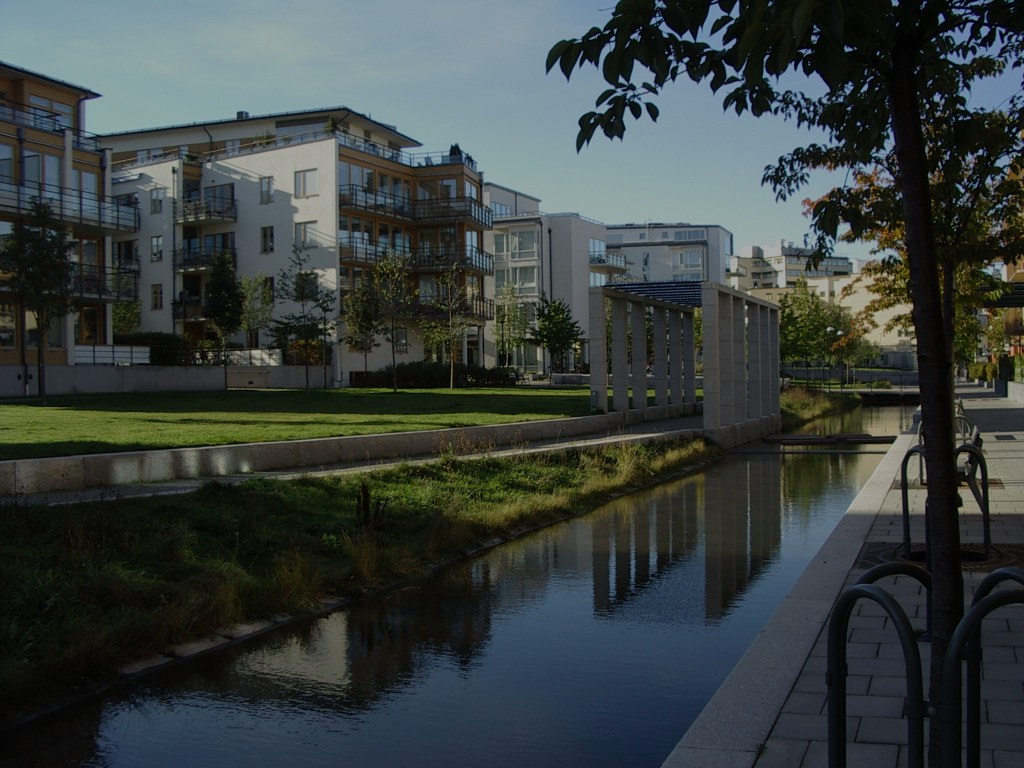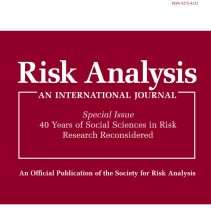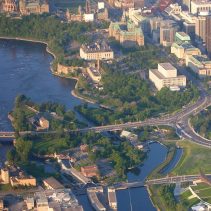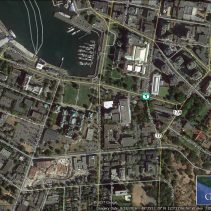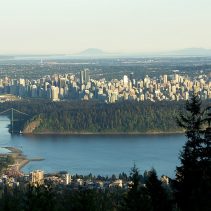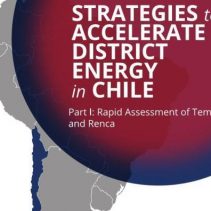Reinventing Cloth Masks in the Face of Pandemics
Working as volunteers in 2020, we developed a simple way to use inexpensive and widely-available materials to make effective face masks for the public. The mask design was tested by three facilities in Canada and the USA, and was found to have a filtering effectiveness against aerosol particles of 76% to 90%. We estimated that if this kind of mask were given to the public, the cost would be approximately 0.2% of the cost of the COVID-19 pandemic to Canada in 2020. We also tested eleven face masks of the kind Canadians commonly wore during the COVID-19 pandemic, and found their average filtering efficiency varied from 3% to 50%, with an average below 25%. None of the masks we were able to buy for testing were made in Canada. We believe that if Canada organized...
Government of Canada, Energy Services Acquisition Program
As a member of the Sustainability Solutions Group team in 2019-2020, Farallon evaluated options for various configurations of district energy systems, with the goal of reducing greenhouse gas emissions from Federal buildings in Ottawa. Farallon estimated the greenhouse gas emissions from burning natural gas in current operations, and the emissions that would be associated with Renewable Natural Gas, biodiesel, and with diverting residual biomass away from open burning and landfilling and for use as a biofuel. Farallon estimated the capital costs and Lifecycle Cost of Energy estimates for four main scenarios. Farallon also developed a novel hybrid district energy concept, in which distribution piping designed for conventional hot water and chilled water...
Legislative Precinct District Energy System
In 2018 and 2019, the British Columbia Ministry of Citizens Services asked for input to its planning process for replacing the central heating plant that supplies heating and cooling to the BC Legislature and other government buildings in Victoria, British Columbia. Specifically, the Province was interested in options that would minimize greenhouse gas emissions, and would also be cost-effective and reliable. As a sub-consultant to Avalon Mechanical Consultants, Farallon worked with Avalon to: Propose environmental, social, and financial evaluation criteria for use in a Multi Criteria Analysis to compare alternatives for replacing the services provided by the central heating plant. Provide information about the environmental, social, and financial costs and...
Renewable Energy in Vancouver
Cypress Village Development, Vancouver, British Columbia. As a member of the Sustainability Solutions Group team in 2018-19, Farallon completed three feasibility studies on behalf of British Pacific Properties for their planned Cypress Village development in Vancouver. The studies evaluated the costs and benefits of on-site electricity generation from micro-hydro and solar-PV, including battery storage, and also the feasibility of providing heat to buildings in the village from biomass and from ground-source heat pumps. The studies involved concept design and layout of district energy networks to serve over 300,000 m2 of building space. The studies also included business cases with estimated capital costs, ongoing costs, cost savings, revenues, changes to...
Clean Energy in Western Nova Scotia
Nova Scotia Western Regional Enterprise Network, 2020. The goal of this project was to provide input to an Energy Investment Plan which is being developed by the Nova Scotia Western Regional Enterprise Network. The Plan is intended to stimulate employment in an area of Nova Scotia which is constrained for growth by the limited capacity its electrical transmission and distribution systems. Farallon investigated ways of producing Renewable Natural Gas and biodiesel from waste streams in the area, the costs and benefits of cellulosic insulation, R744 heat pumps for water heating, and district energy based on...
District Energy in Chile
United Nations Environment Program. In 2017 Stephen completed a “Rapid Assessment” to find ways to reduce air pollution and reduce greenhouse gas emissions caused by burning firewood to heat buildings in Chile. The assessments included the City of Temuco and the Santiago suburb of Renca. The work was part of United Nations Environment’s District Energy in Cities Initiative, and was completed under contract to the Sustainability Solutions Group. In the community of Temuco, the challenge is that 93% of the air pollution comes from burning firewood for heat in single homes. Current heating practices cause significant health issues, as well as other forms of suffering such as energy poverty. These homes are distributed over a wide area of the city, and the assessment...
